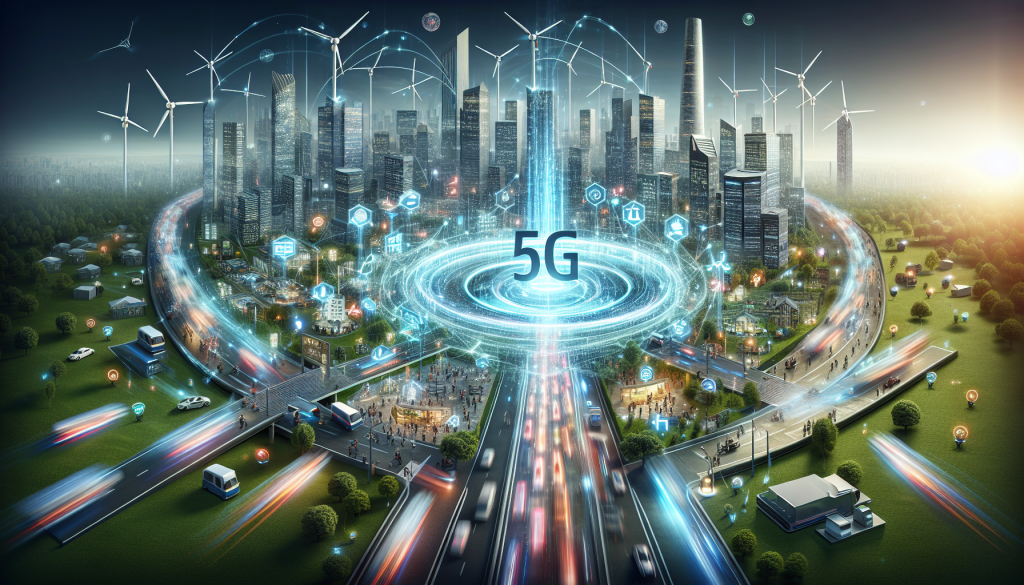
5G Revolution: How Ultra-Fast Networks Are Reshaping Cities
5G Revolution: How Ultra-Fast Networks Are Reshaping Cities
The world is moving towards a new era of connectivity with the rapid adoption of 5G technology. With its ultra-fast speeds and low latency, 5G is set to revolutionize the way we live, work, and interact with our surroundings. The impact of this next-generation network is not limited to just individuals, but it is also reshaping entire cities. In this article, we will explore how 5G is transforming urban areas and the potential it holds for the future of cities.
5G Technology and Its Features
Before we dive into the impact of 5G on cities, let’s understand what this technology is all about. 5G, short for fifth generation, is the latest advancement in wireless communication. With its super-fast download and upload speeds, 5G is designed to handle the increasing demand for data and connectivity. Compared to its predecessor 4G, 5G has ten times the speed, allowing for almost instantaneous data transfer. This technology also boasts lower latency, meaning data can be transmitted with minimal delays, making it ideal for real-time applications.
5G Reshaping City Infrastructure
With its superior capabilities, 5G is transforming the way cities function. One of the significant impacts of 5G is on infrastructure. The technology is enabling the creation of smart cities, where various devices and systems are interconnected, exchanging information to improve efficiency and sustainability. For instance, smart traffic lights powered by 5G can adjust in real-time to reduce traffic congestion, saving time and fuel for commuters. Similarly, 5G can facilitate efficient waste management, better energy distribution, and even enhance public safety through the use of surveillance cameras equipped with real-time video analytics.
Empowering Industries with 5G
5G is not only changing the way cities are managed, but it is also empowering industries to innovate and evolve. With its exceptional speed and low latency, 5G is transforming manufacturing processes, healthcare systems, and transportation. For example, with 5G-powered robotics, factories can achieve higher levels of automation, increasing productivity and reducing costs. In healthcare, 5G is supporting the development of telemedicine, where doctors can provide remote consultations and surgeries with real-time imaging and data transfer. In transportation, 5G is driving the development of self-driving cars, making roads safer and more efficient.
Challenges and Opportunities
As with any new technology, 5G also comes with its own set of challenges and opportunities for cities. The deployment of 5G infrastructure requires significant investment from telecommunication companies and the government. Additionally, there are concerns about the potential health risks of the higher frequency radiation used in 5G compared to its predecessors. However, the benefits outweigh the challenges, and cities that embrace 5G stand to gain a competitive advantage. With its potential to improve quality of life, attract businesses and boost economic growth, 5G is a game-changer for cities.
The Future of Cities with 5G
As 5G technology continues to evolve, the possibilities for cities are endless. With smart sensors and interconnected devices, cities of the future will be more sustainable, efficient, and livable. For example, smart streetlights will dim when no one is around, reducing energy consumption and light pollution. The widespread use of augmented and virtual reality with 5G will offer immersive experiences and revolutionize the way we work, shop, and learn. 5G also has the potential to bridge the digital divide and bring affordable high-speed internet to remote areas, improving access to education, healthcare, and job opportunities.
In conclusion, 5G technology is paving the way for a more connected and innovative world. Its ultra-fast speeds and low latency are transforming cities into smart, sustainable, and efficient hubs. As we move towards a future where everything is connected, it is crucial for cities to embrace 5G and leverage its potential. The 5G revolution has just begun, and the future of cities is brighter than ever before.
